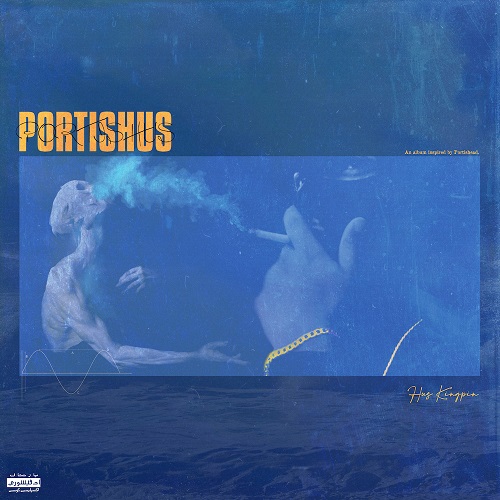Portishead was never a rap group. Beth Gibbons did nothing other than sing. Yet, in a certain sense, it was a great hip-hop band. Geoff Barrow's dark beats, gloomy atmospheres, and melancholic vision strongly paralleled the emerging forms of street rap developing across the Atlantic around the same time. Strip away the raps, the ghetto swagger, and the kung-fu folklore from Enter The Wu-Tang, and that iconic rap record starts to look dangerously similar to Dummy. Incidentally, both albums could rightfully stake a claim as the very best of the '90s.

More than Massive Attack or any other contemporaries, Portishead legitimized the "hop" in "trip hop." Later, Barrow underscored his affinity for hip-hop through the Quakers project. It’s no surprise, then, that Hus Kingpin—one of the artists, alongside Roc Marciano, working to sustain the East Coast rap tradition of the last century—would dedicate an entire project to the English band. This came three years after sampling "Cowboys" for his track "Hannibal Hus."
The Long Island rapper has long been drawn to thematic concepts. His House Of Kingpin mixtapes borrowed their name from the House Of Cards series. Another project paid tribute to basketball player Richard Dumas. Alongside SmooVth—his comrade from the #TheWinners crew—he released H.N.I.C.: Hempstead Niggas in Charge, a nod to Prodigy's first solo album.
Hus Kingpin approaches such projects with care and seriousness. On Portishus, he doesn’t just sample Portishead; he reinvents their sound. Beyond using a Gibbons interview for a track named after her, he channels the deep melancholy that defines the band's music. His sound mirrors Portishead’s: part abyssal, part ethereal, infused with soul and jazzy elements. Tracks like "The Intruders" feature soaring synthetic violins, while "A Killer’s Quench" and "Dark Mourning" evoke Adrian Utley’s guitar work. Even when he ventures beyond the Portishead template, as on a track named after Kool Keith, Kingpin stays tethered to their spirit.
Some moments on Portishus stick closely to its inspiration, such as "Belly" (featuring Cleveland rapper Rain AKA Black Widow), the airy "The Gram Tape," the murky "The Atticus Play," the haunting "Shooters Harmony," and the luminous "Sunkist, Pt. 2." Still, the self-proclaimed "second most 'wavy' rapper after Max B"—a term I’ve never fully grasped but will let slide—delivers his tribute while maintaining his trademark New York grit.
This is music for the underdogs, steeped in ghetto storytelling and hardcore tradition. As a matter of fact, Hus Kingpin enlists seasoned underground hip-hop stalwarts such as Breeze Brewin and Vinnie Paz, alongside trusted collaborators like Ransom and Willie the Kid. Ultimately, the project underscores the enduring kinship between Portishead’s sound and this strain of rap. In fact, Portishus is not far removed from the kind of music Roc Marciano frequently delivers—without ever explicitly citing the UK group as an influence.
